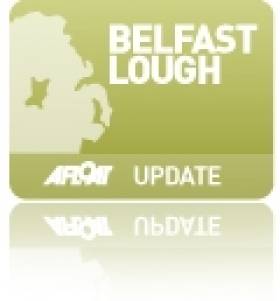Displaying items by tag: MIAB
MIAB Report into Belfast Lough Collision Finds Fault on Both Sides
#BELFAST LOUGH - Inappropriate actions by the bridge teams of two vessels contributed to their collision in Belfast Lough earlier this year, according to the official report into the incident by the UK's Marine Accident Investigation Branch (MIAB).
BBC News reports on the MIAB's findings in its investigation into the collision of the container ship Union Moon and passenger ferry Stena Feronia on 7 March last, which resulted in substantial damage to both vessels.
The Stena Feronia, which was heading into port en route from Birkenhead, made contact with the Union Moon near the Fairway Buoy about 1km from the shore between Carrickfergus and Helen's Bay.
The report found that the Union Moon's captain made an inappropriate course alteration on leaving port while under the influence of alcohol which put it in the direction of the inbound ferry.
The captain of the Union Moon, 55-year-old Miroslaw Pozniak, was subsequently arrested and charged with 'excess alcohol by the master of a ship', and later sentenced to a year's imprisonment.
However, the MIAB also determined that the decision by the master of the Stena Feronia to leave his bridge "at a time when his ship was effectively under pilotage and approaching the harbour limit of Belfast, with a converging outbound vessel, was unwise".
In addition, there was a delay on the part of the ferry's pilotage exemption certificate (PEC) holder in taking corrective action due to a lack of "precautionary thought" and "appreciation of the limited time available", while sub-standard VHF communications on the Stena Feronia were also called into question.
Meanwhile, the MIAB report added that they was a lack of clear guidance regarding traffic flow around the Fairway Buoy.
The incident was the second involving excess alcohol by a ship's master in UK waters in six months, following the beaching of the container vessel Karin Schepers on the Cornish coast in August 2011.
The complete MAIB report into the incident is available HERE.






























































